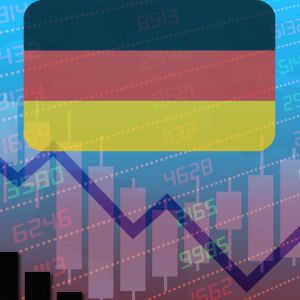Investor sentiment toward Germany’s economy has weakened significantly after the EU and the US settled on a trade deal. According to the ZEW institute analysis, investor expectations fell to 34.7 in August, down from 52.7 last month and short of the 39.5 projected by Bloomberg-polled analysts. ZEW President Achim Wambach has attributed the drop in the investor expectations index to the 15% tariffs on German goods under the EU–US deal and the country’s weak second-quarter performance. Investor sentiment in the chemical and pharmaceutical industries has dropped significantly After two years of contraction, Trump’s new levies on German exports have dampened hopes of a swift recovery. Like most investors, Valentin Jansen, an analyst at Nord LB, shared a similar view, noting that the imposed rates would only hurt the country’s economy. He remarked, “The latest trade deal with the US clearly isn’t a lasting and viable solution in relations between Brussels and Washington.” He argued that although their negotiations had prevented a more serious immediate impact, the resulting trade measures and internal market challenges could strain Germany’s economy. According to Wambach, the chemical and pharmaceutical industries faced the steepest decline in investor prospects alongside mechanical engineering, metals, and automotive sectors. The outlook for the auto sector is particularly bleak, with manufacturers facing weak EV demand, plunging Chinese sales, and higher tariffs from Trump. Aside from the levies, the conflicts in Ukraine and Gaza, uncertainty over social-security sustainability, and divisive migration debates are adding pressure on the country’s economy. At the moment, the Bundesbank is estimating zero growth for Germany this year. June’s data also showed that factory orders fell for a second straight month and industrial production registered its largest drop in nearly a year. Chancellor Friedrich Merz’s approval is also slipping, with most now doubting his ability to steer the country through a crisis, exacerbating the risk of another year of economic contraction. US consumers are also facing the brunt of tariffs Germany is not the only country burdened by the levies. US tariffs have also started to affect American consumers, as companies slowly passed higher import costs on to consumers. According to Bloomberg, core CPI, excluding food and energy, increased 0.2% in July after gaining 0.3% in June. The U.S. dollar also weakened against the euro on Tuesday. Reports also show that CPI increased 2.7% in July year-on-year, matching the annual pace recorded in June. Nonetheless, Americans are seeing some relief in lower gasoline costs, which likely held the headline CPI to a 0.2% monthly gain. Yet US consumers have begun facing minor effects from higher tariffs in areas such as home goods and recreational products. Sluggish price gains for core services notwithstanding, most economists believe the impact of import duties will persist. In the meantime, the Federal Reserve has kept interest rates unchanged this year to evaluate how tariffs affect inflation while grappling with a slowdown in hiring trends. Meanwhile, companies are scrambling to protect budget-conscious consumers from higher costs due to tariffs. Economists expect Friday’s government figures to capture a solid increase in July retail sales, produced largely by auto-buying incentives and surges in online spending during Amazon’s Prime Day. Cryptopolitan Academy: Want to grow your money in 2025? Learn how to do it with DeFi in our upcoming webclass. Save Your Spot











